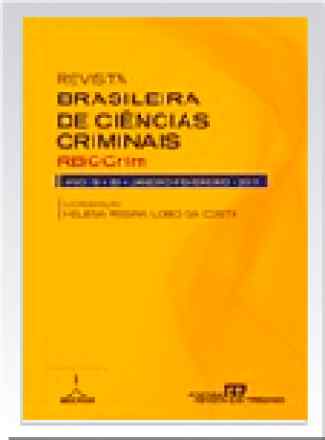INTERVENÇÕES CORPORAIS COERCITIVAS, NEMO TENETUR SE DETEGERE E INOVAÇÕES TECNOLÓGICAS: É O FIM DO DIREITO DE NÃO PRODUZIR PROVAS CONTRA SI MESMO?
Revista Brasileira de Ciências Criminais
INTERVENÇÕES CORPORAIS COERCITIVAS, NEMO TENETUR SE DETEGERE E INOVAÇÕES TECNOLÓGICAS: É O FIM DO DIREITO DE NÃO PRODUZIR PROVAS CONTRA SI MESMO?
Autor Correspondente: Maria Paes Barreto de Araujo Carvalho | [email protected]
Palavras-chave: Nemo tenetur se detegere. Garantia contra autoincriminação. Intervenções corporais. Corte Europeia de Direitos Humanos. Tecnologia.
Resumos Cadastrados
Resumo Português:
O presente artigo versa sobre o princípio nemo tenetur se detegere, que compreende o direito à não autoincriminação, e sua relação com as intervenções corporais coercitivas. O objetivo geral traçado é analisar e concluir se esse direito se estende (ou não) às intervenções corporais coercitivas, geralmente praticadas de maneira invasiva. Além disso, busca avaliar se tal conclusão pode ser alterada diante de novos, modernos e tecnológicos meios de obtenção de prova que permitam a coleta de elementos corporais de maneira não invasiva, sem afetação da integridade física do sujeito a eles submetido. Para tanto, utiliza-se a metodologia teórica e documental baseada em pesquisa bibliográfica, bem como a pesquisa empírica. Estruturalmente, o texto primeiro recorre ao conteúdo e ao conceito do princípio nemo tenetur se detegere e de intervenções corporais coercitivas. Utiliza, na sequência, os julgados da Corte Europeia de Direitos Humanos sobre o tema e a realidade brasileira na seara legislativa, doutrinária e jurisprudencial. Tendo em vista a controvérsia sobre o assunto e a sua discussão ainda insuficiente em solo nacional, mas já avançada internacionalmente – inclusive levando em consideração possíveis inovações tecnológicas que permitam a prática de intervenções corporais coercitivas de maneira não invasiva e sem afetação da integridade do sujeito passivo – mostra-se fundamental o presente estudo.
Resumo Inglês:
This article addresses the nemo tenetur se detegere principle, which entails the right against self-incrimination, and its relation to coercive body interventions. The general objective is to analyze and conclude whether this right should (or not) be extended to coercive body interventions, often practiced under invasive manners. Also, it aims to assess whether such conclusion may be altered when faced with the novel, modern, and technological means of evidence-gathering, which allows for the collection of bodily elements under a non-invasive manner, without affecting one’s physical integrity when subjected to them. To this end, the theoretical and documentary methodology based on bibliographic research is used allied with empirical research. Structurally, first the contents and concepts of the nemo tenetur se detegere principle and of coercive body interventions are taken into account. It uses, in the aftermath, the jurisdiction cases from the European Court of Human Rights on the theme and the Brazilian reality on the jurisprudence, law, and doctrine instances. In view of the controversy on the subject and its discussion still insufficient on national soil, but already advanced internationally - including in a non-invasive manner and without jeopardizing the physical integrity of one submitted to the measure – the present study is important.

